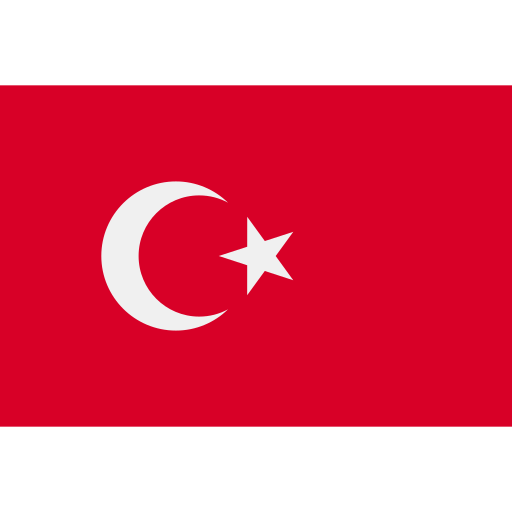The brazen murder that spotlighted Berlin’s timid Russia policy
[ad_1]
In response, the government of Chancellor Olaf Scholz expelled two Russian “diplomats” who were in fact intelligence officers — not from the FSB, the Russian intelligence agency the court deemed most likely responsible for ordering the murder, according to one official, but from the GRU, Russia’s military intelligence. The hope, German officials said, was that Germany could maintain its intelligence presence in Moscow — much smaller than the number of Russian operatives in Berlin — and avoid large tit-for-tat expulsions.
Germany’s timid reaction to the verdict was part of a long-standing pattern of appeasing the Kremlin, critics say, a policy that straddled different governments and was designed to protect Germany’s business ties with Russia, particularly its need for Russian oil and natural gas. But some now question whether the unwillingness to punish Russian President Vladimir Putin, even in the face of state-sanctioned murder, added to the Kremlin’s sense of impunity before the invasion of Ukraine, at a moment when the United States was warning that Russia was planning an attack.
The reaction was one of the “signals” that Russia received that even a new government was not going to act to rein in Moscow, said Andriy Melnyk, Ukraine’s ambassador to Berlin at the time. “The political reaction was absent,” he said. “It was ridiculous. It was the critical period, when everyone knew, when the Americans knew, that Russia was going to start the war.”
The killing took place just before midday on Aug. 23, 2019, a balmy summer day. Khangoshvili’s then-18-year-old daughter Amira returned home from class to find him putting on his shoes. He told her he had some “business” to take care of before heading to Friday prayers at a nearby mosque.
“He was in a good mood, smiling,” she recalled. “He said he wouldn’t be long.”
A few minutes later, in Berlin’s Kleiner Tiergarten park, the first shot ripped through Khangoshvili’s chest before the killer, wearing a long black wig to hide his identity, delivered another to the back of the Chechen’s neck, investigators testified. Krasikov then got off his bike and stood over Khangoshvili to deliver a final shot to the head with his 9mm Glock 26 pistol equipped with a silencer. Witnesses in the park looked on in horror.
The killing sent a dual message, said one German security official who, like others, spoke on the condition of anonymity to discuss sensitive diplomacy. “To the Kremlin’s opponents it’s saying, ‘We can kill you no matter where you are,’” the official said. “But then also to Germany, the message was: ‘We don’t care about or respect your country’s sovereignty.’”
Sergei Nechayev, the Russian ambassador to Germany, described the verdict and Krasikov’s life sentence as “a biased, politically motivated decision” and said claims of Russian involvement were “absurd.” But the FSB recently suggested including Krasikov in a prisoner swap to secure the release of two Americans held in Russia, basketball star Brittney Griner and security consultant Paul Whelan, according to U.S. officials. The Biden administration described the FSB offer, which was first reported by CNN, as “not serious.”
A German government spokesman said authorities in Berlin were briefed on U.S.-Russian discussions, but declined to comment further.
Russia’s all-out assault on Ukraine in February has launched what Scholz has dubbed a Zeitenwende, or turning point, in German foreign and defense policy.
“If you take Feb. 24 as a turning point, I’m on the side of those people who are saying we have to look at many things that happened in the past and reflect further,” said Konstantin von Notz, a Green politician and member of the parliamentary oversight committee for Germany’s intelligence agencies. “That includes this case.”
Germany did not “read the signs” of Russia’s increasingly nefarious actions in Europe, he said. “We didn’t pay enough attention to the details.”
The fact that the killer was caught, allowing the trail to Moscow to be exposed, was down to luck, Notz added. “If that didn’t happen, we probably wouldn’t know … of Russia’s involvement.”
A bungled escape led to the killer’s capture. Two witnesses spotted Krasikov changing clothes in bushes and throwing his bicycle in the Spree river, and they called the police. Investigators later pulled the Glock out from the water. Krasikov, who had a passport on him in the name of Vadim Sokolov, claimed to be a tourist who had stopped to urinate in the bushes.
But a day after the killing, thousands of miles away in South Africa, Christo Grozev, executive director of the investigative outlet Bellingcat, was carrying out a joint training session with the Russian publication the Insider for journalists from across the continent.
“It fit perfectly what I was training them, how we go about evaluating fake identities,” he said. He searched Bellingcat’s trove of leaked Russian databases to see whether the name Vadim Sokolov existed, but it came back with no match. “We concluded that it was likely a fake identity.”
Within a week of the killing, Bellingcat published a piece outlining why Russia’s claims that the killer was not connected to the Russian state were implausible. The passport had been issued in Sokolov’s name only 10 days before its holder traveled to Europe, and matched a batch of passports issued to Russian intelligence officers.
“It’s something we’ve accepted as a mission, to shame governments and prosecutions into doing the full job, and not just the easiest job,” Grozev said.
Despite the killing being quickly linked to Russian intelligence, it took until December for the case to be referred from the Berlin police to federal investigators.
“It was clear that on a political level that they needed to decide how to treat this case,” said one U.S. official. “It was very clear that they were thinking, if we take this step, it’s a political step.”
But Bellingcat’s work made the case hard to ignore — Krasikov’s indictment cited Grozev’s statements and work for the investigative outlet 159 times. “It absolutely was Bellingcat,” the U.S. official said.
In December 2019, when federal prosecutors first announced that Russian state authorities might be behind the killing, the government of then-Chancellor Angela Merkel expelled two Russian diplomats, with Merkel citing the fact that Moscow had not cooperated in the investigation.
An ethnic Chechen born in Georgia, Khangoshvili had grown up along the fault lines of the restive post-Soviet Northern Caucasus. In 2000, at the age of around 20, he took up arms in the Second Chechen War. He commanded a group of about two dozen men from the Pankisi Gorge, a valley in Georgia that was a hub for the Chechen separatists.
In 2004, according to family members and the German investigation, Khangoshvili participated in an attack on a police station in Nazran in the Russian republic of Ingushetia that led to the deaths of 58 police officers. German investigators said the raid marked him for “retribution.” When asked about the Berlin killing at a news conference in December 2019, Putin labeled Khangoshvili a “bloodthirsty” killer.
After fighting in the Chechen war, Khangoshvili returned to Georgia in 2004, where he lived under his mother’s maiden name. He helped Georgian intelligence with the identification of Russian spies and negotiations with Islamist militants, the German court was told, and became close to the government of Mikheil Saakashvili, the Western-leaning former president of Georgia who headed the country during its 2008 war with Russia.
In a 2012 letter from the FSB office at the Russian Embassy in Berlin to Germany’s Federal Criminal Police Office, which was obtained by The Washington Post, the FSB accused Khangoshvili, then based in Georgia, of being a member of the Caucasus Emirate, a militant Islamist group that claimed responsibility for attacks including one on the Moscow metro in 2010 that killed 39 people. His family says he believed it was part of a Russian effort to smear his name, complicate any future asylum procedures and dampen reaction if he was killed.
Five of the 19 alleged members in a list attached by the FSB, including Khangoshvili, have since died under suspicious circumstances, according to German investigators. One of those named was stabbed and shot by suspected Russian spies in Istanbul in 2015; another was killed in a car bomb in Kyiv in 2017.
Khangoshvili was deemed a “high-value target” by Russia, German investigators said. In 2015, there was an attempt on his life in Tbilisi, the capital of Georgia, where he was shot four times while driving in his car. For Khangoshvili and his family, there was never much doubt who was behind the attack.
“I know for sure that I have no enemies in Georgia,” Khangoshvili said in an interview with a Georgian television channel from his hospital bed.
With Georgia slipping increasingly into Moscow’s orbit and amid warnings about his safety, Khangoshvili decided he and his family needed to flee. He initially left for Odessa in Ukraine, where Saakashvili was briefly governor. There he met his second wife, a 22-year-old philosophy student, marrying her in February 2016. She requested anonymity, citing fears for her security. They traveled on to Germany, where Khangoshvili claimed asylum in January 2017.
His first wife, who says the family was threatened in Georgia in an effort to force Khangoshvili to return, fled to Poland, where his first wife and childrenlived for almost a year before lodging a separate asylum claim in Germany in the summer of 2017. His first wife separated from Khangoshvili after she discovered he had married again.
When he was killed, Khangoshvili lived with his second wife, their 18-month-old son and Amira, his oldest daughter from his first marriage, in a one-bedroom apartment just a few minutes’ walk from the park where he died.
Khangoshvili hoped Berlin would be a haven. “I thought that Germany is one of the safest countries in the world,” he said at one asylum hearing, according to files viewed by The Post.
The threats continued, however. “We know that you are now in Germany,” read one message he received in December 2016, according to court documents. “Don’t think that this is the beginning of your new life. Your hell only begins.”
Still, Khangoshvili’s asylum case was rejected multiple times, as was that of his first family. His second wife, whom he married in an Islamic ceremony, had a passport from a European country.
After one refusal, his first wife, Manana, took pills to get herself hospitalized to stop the family’s deportation. “They marked it as a suicide attempt, but it was pure self-defense,” she said.
In a 2018 rejection, the asylum judge reasoned that the threat of assassination was not sufficient cause to provide protection because if Moscow wanted to assassinate Khangoshvili, “the Russians could then pursue him in Germany just as easily.”
Even after the killing, Russian authorities continued to press for information on Khangoshvili’s family members, asking in a January 2020 letter for their addresses, incomes and professions, ostensibly to consult the family on Russia’s continuing investigation into Khangoshvili.
“This request is obviously used by the Russian security apparatus to spy on the family of the crime victim in Germany,” lawyers for the family wrote in one document. German authorities did not respond to the Russian request.
Manana and her children finally got asylum after her ex-husband was killed. “Now it doesn’t bring me any joy,” she said.
Before the invasion of Ukraine, Russia had 150 to 200 spies with diplomatic immunity working out of its embassy and consulates in Germany, far outnumbering the contingent Germany has in Russia, according one German official.
After Krasikov was found guilty in December, the German foreign intelligence service, the BND, argued against targeting the FSB to keep open lines of communication between the two services, according to German officials. The BND declined to comment.
“We didn’t want to cut our own flesh,” said one Greens staffer. “It was a time when we needed and wanted all of our ears in Russia.”
It was also a matter of timing, the staffer said. “We were just working out how to govern and find our role,” he said. “Back at that time it was hard to see where we were and how to change the course of policy toward Russia.”
Germany’s Foreign Ministry did not respond to requests for comment.
After the attempted killing of former Russian double agent Sergei Skripal in Britain with the nerve agent Novichok in 2018, the British government rallied a coordinated response with Europe and the United States. More than 150 Russian diplomats were expelled, including 60 from the United States, in what Britain said was an attempt to degrade Russian intelligence capabilities.
Germany expelled four — the same total number as it would later eject over the killing on its own soil.
Since Russia’s invasion of Ukraine, Germany has expelled a further 40 “diplomats” but still allows at least 100 Russian spies to operate out of its embassy and consulates, according to the German official, including FSB officials at the Russian Embassy in Berlin. A European security official put the number of remaining “identified” Russian spies at 50 to 100, including those Russia has officially flagged to German authorities as working for its intelligence branches.
The real number is believed to be double or triple that, the official said.
Anastasiya Ivanova in Berlin contributed to this report.
[ad_2]
Read Nore:The brazen murder that spotlighted Berlin’s timid Russia policy

 Canada
Canada Japan
Japan Germany
Germany Australia
Australia United States
United States United Kingdom
United Kingdom China
China France
France Ukraine
Ukraine Russia
Russia Turkey
Turkey